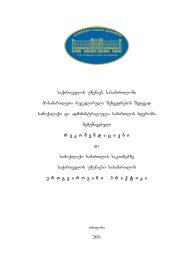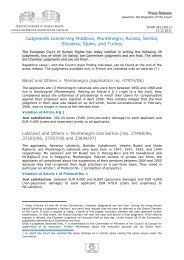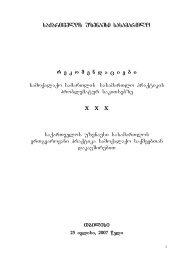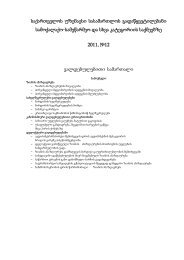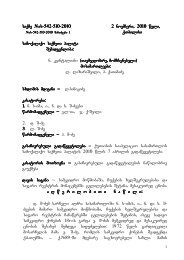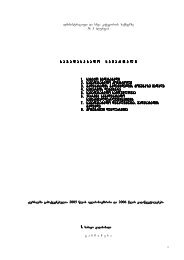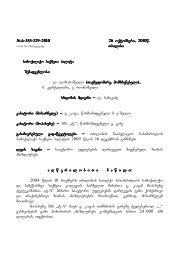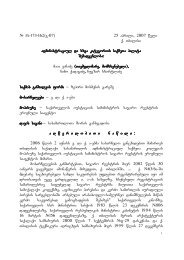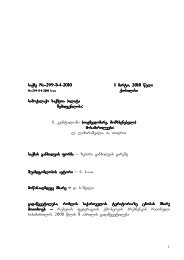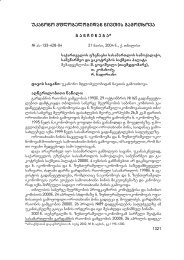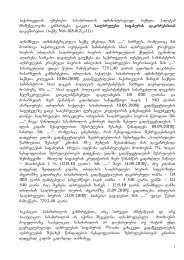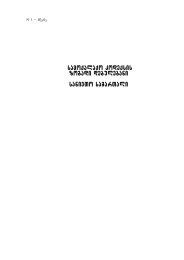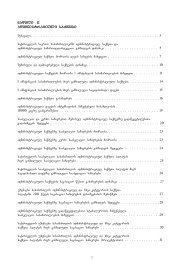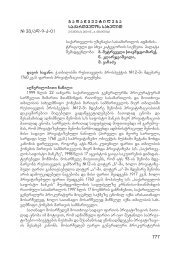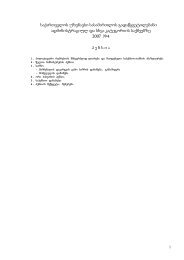#1(36)'13
#1(36)'13
#1(36)'13
Create successful ePaper yourself
Turn your PDF publications into a flip-book with our unique Google optimized e-Paper software.
marTlmsajuleba<br />
N1<br />
da<br />
kanoni<br />
PROBLEMS CONNECTED<br />
WITH THE CONCEPT OF<br />
IMMOVABLE THING AND RIGHT<br />
TO IMMOVABLE THING IN<br />
THE GEORGIAN LEGISLATION<br />
REVAZ MIKABERIDZE<br />
Lawyer<br />
Immovable thing and the ownership right to the latter hold a significant place<br />
not only in daily life, but also in legal literature and state policy. Therefore, due<br />
attention should be paid to it also on the legislative level. The concept of immovable<br />
thing given in our civil code is of a general character and it requires further<br />
specification.<br />
Legal status of certain components of the existing concept of immovable thing<br />
(subsoil minerals, buildings and constructions) is discussed in this article and by<br />
analogy it is proposed to add water resources and forest (which under special<br />
laws are granted a special status as subsoil minerals) to the immovable thing<br />
concept. If subsoil minerals are directly covered by the immovable thing concept,<br />
the same should apply to water resources and forests. The latter represent<br />
immovable things by nature.<br />
Regarding buildings and constructions, there are opinions that it should be<br />
defined by legislation within what stages buildings and constructions can be<br />
considered to be under construction process and it should not be regulated only<br />
by existing practice. In short, the article presents the idea to have more detailed<br />
definition of the immovable thing concept in the civil code, as it is done in<br />
legislations of many countries.<br />
Along with the indicated topics the article also discusses the issue that apart<br />
from classification of things into movable and immovable items, the civil code<br />
should also divide things into public and private ones, i.e. depending on who<br />
could be their owners. As it is also indicated in the article, there are a number of<br />
immovable things the owner of which can only be state.<br />
114



